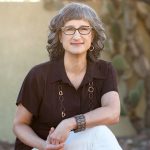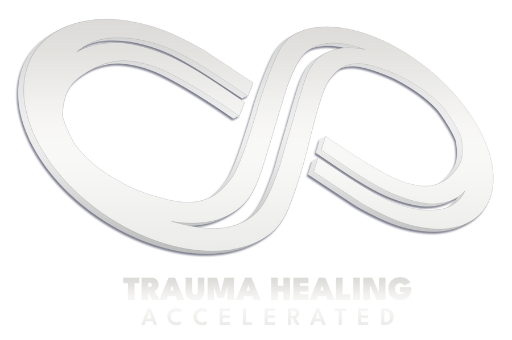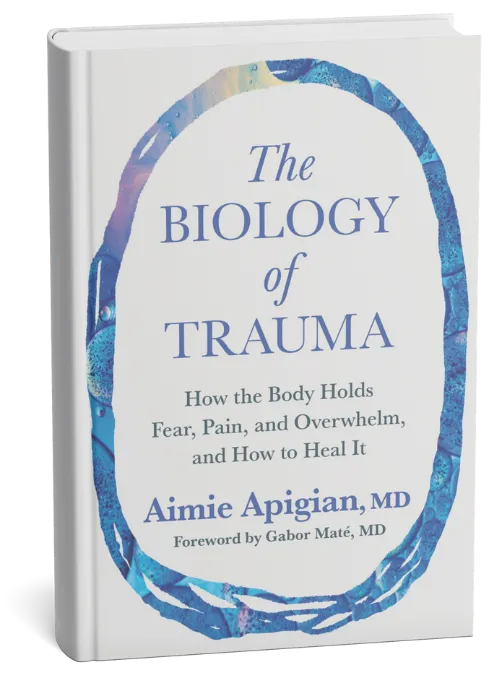
Grief: The Science Behind Why We Can't 'Get Over' Loss And How to Grieve

Grief: The Science Behind Why We Can't 'Get Over' Loss And How to Grieve
Understanding why grief feels so physical, why someone still reaches for the phone to call someone who’s gone, or why certain memories can trigger intense emotions years after a loss can provide valuable insight for those helping others who are experiencing grief or for those who want to know more about grief. And today, we’re diving into the neuroscience behind grief.
In this episode, Dr. Mary-Frances O’Connor joins Dr. Aimie to discuss how grief isn’t just an emotional response but a complex learning process as our brains adapt to a fundamentally changed reality. She introduces the critical distinction between grief and grieving, highlighting how our attachment patterns influence our grief journey. Her fascinating research on yearning reveals that this powerful sensation activates the same brain regions involved with other basic survival needs, explaining why the feeling can be so intense and overwhelming.
The conversation also goes into how avoidance and rumination can interfere with natural healing, and that the intensity and frequency of grief waves will change over time as part of the grieving process.
Whether you’re currently navigating grief, supporting someone who is, or simply preparing for inevitable losses, this episode will help you understand why healing isn’t “getting over” a loss, but an ever evolving process that fundamentally changes our reality.
Dr. Mary-Frances O’Connor is a Professor of Clinical Psychology and Psychiatry at the University of Arizona. Her research focuses on the physiological correlates of emotion, in particular the wide range of physical and emotional responses during bereavement, including yearning and isolation. She believes that a clinical science approach toward the experience and mechanisms of grieving can improve interventions for prolonged grief disorder, newly included in the revised DSM-5.
Helpful Links Related To This Episode
Guides, Tools & Resources:
The Essential Sequence – A free guide that shows you the difference between stress and trauma states of our nervous system. In just 3 steps, it walks you through what your body needs when it has stored trauma or is in a freeze response.
Foundational Journey – If you want to be safely guided through The Essential Sequence, and lay your foundation of regulation in this online 6 week course, join me and my team of mentors for this journey into your inner world with practical somatic and parts self-practices
KEY MOMENTS:
[05:25] Which brain regions activate when you yearn for someone who has died
[08:11] Why yearning is more like hunger or thirst than addiction
[10:36] The difference between grief (response) and grieving (adaptation process)
[17:05] How rumination and avoidance can interfere with natural healing
[24:24] The importance of staying grounded and connected to the present
[28:02] How to prepare your brain and support systems for future grief experiences
[35:39] The crucial differences between depression and grief, and why they require different approaches
Connect with Dr. O’Connor:
Website
Disclaimer:
By listening to this podcast, you agree not to use this podcast as medical, psychological, or mental health advice to treat any medical or psychological condition in yourself or others. This podcast is for informational and educational purposes only and does not constitute professional advice, diagnosis, or treatment. Always consult your own physician, therapist, psychiatrist, or other qualified health provider regarding any physical or mental health issues you may be experiencing. This entire disclaimer also applies to any guests or contributors to the podcast. Under no circumstances shall Trauma Healing Accelerated, any guests or contributors to The Biology of Trauma® podcast, or any employees, associates, or affiliates of Trauma Healing Accelerated be responsible for damages arising from the use or misuse of the content provided in this podcast.
Comment Etiquette:
I would love to hear your thoughts on this episode! Please share your constructive feedback by using personal name or initials so that we can keep this space spam-free, and let’s keep the discussion positive!
Drop your thoughts below about the episode! I want to hear from you.
Connect with me on social media
Foundational Journey
You. Calm. Alive.
Be safely guided step-by-step through the essential process for addressing stored trauma in your body.
Disclaimer:
By listening to this podcast, you agree not to use this podcast as medical advice to treat any medical condition in either yourself or others. Consult your own physician for any medical issues that you may be having. This entire disclaimer also applies to any guests or contributors to the podcast. Under no circumstances shall Trauma Healing Accelerated, any guests or contributors to The Biology of Trauma podcast, or any employees, associates, or affiliates of Trauma Healing Accelerated be responsible for damages arising from the use of the podcast.


